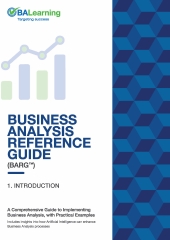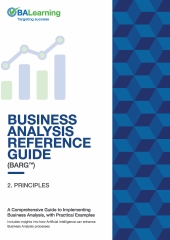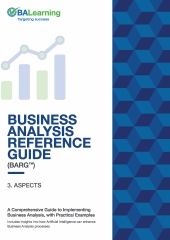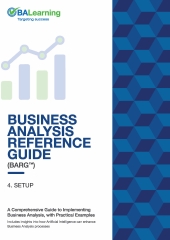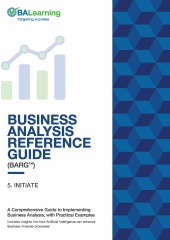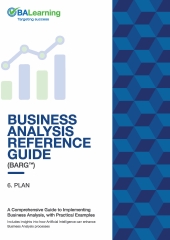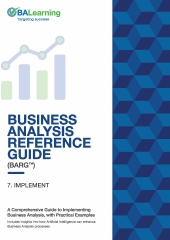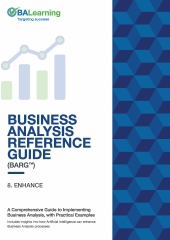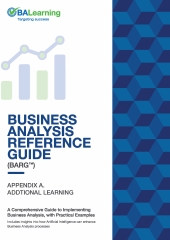The BARG™ is a comprehensive resource for mastering modern Business Analysis practices. Designed for professionals of all experience levels, it covers the full BARG™ framework—principles, aspects, and processes—with a focus on real-world application. Unlike dense theoretical texts, BARG™ offers actionable guidance with practical tools, templates, and examples, making it ideal for everyday use.
The BARG™ is available as a free download at BALearning.com, giving you instant access to an industry-leading Business Analysis framework. Whether you’re preparing for certification or implementing BA practices within your organization, this guide provides clear, structured support to help you deliver value effectively.
Built for today’s evolving business landscape, BARG™ supports both adaptive and predictive approaches and integrates seamlessly with Agile frameworks like Scrum and Kanban. It also emphasizes the role of AI in modern Business Analysis, equipping professionals to thrive in digital, data-driven environments.
Used by professionals in over 50 countries, BARG™ is backed by free study guides, webinars, and certification opportunities. Whether starting your career or looking to advance it, the guide helps standardize your practices and amplify your impact across any industry or initiative size.

